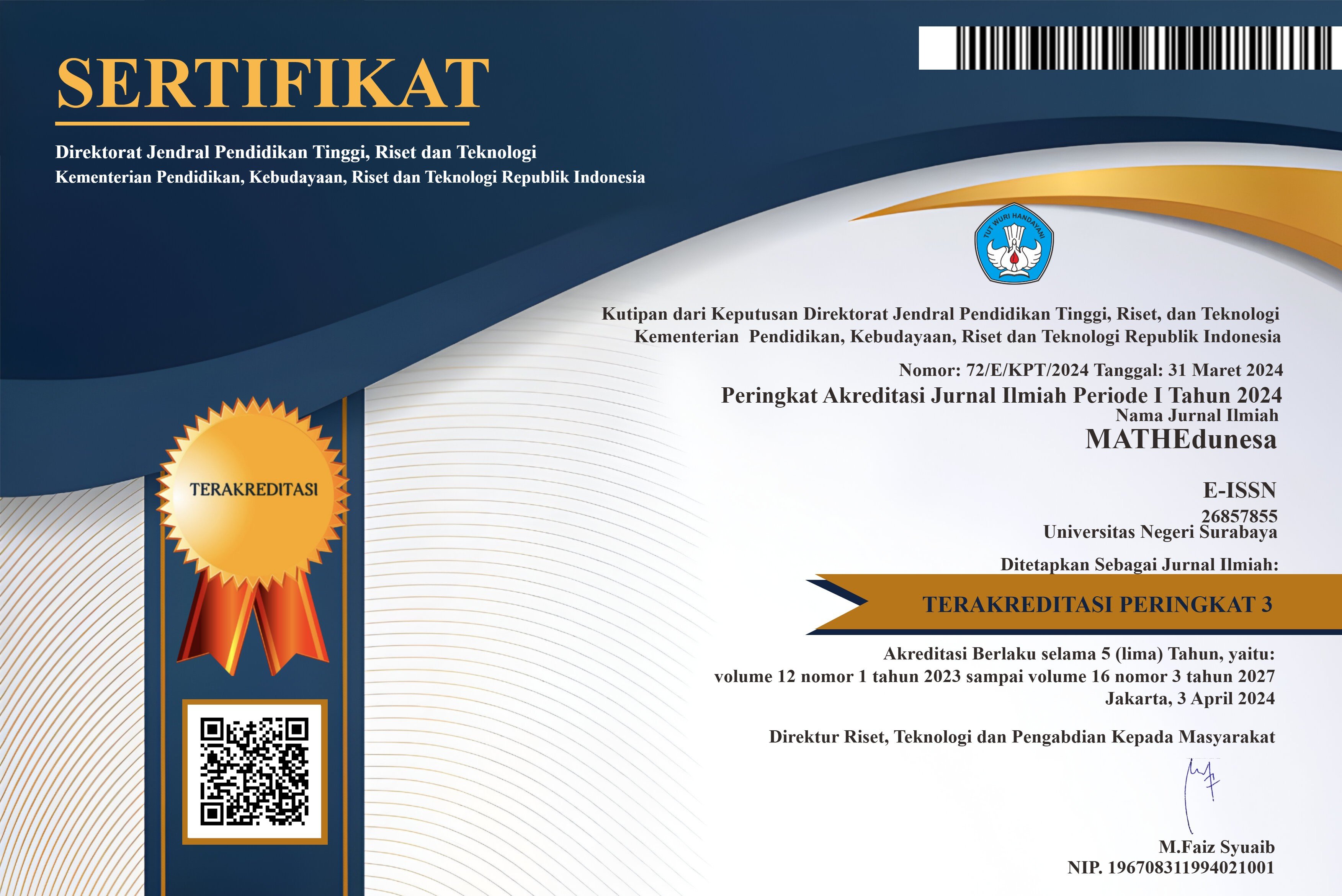Mathematical Communication Skills Of Senior High School Student In Solving Mathematical Problem Based On Adversity Quotient
DOI:
https://doi.org/10.26740/mathedunesa.v14n1.p85-103Abstract
Mathematical communication skills are useful for students to understand mathematical language. This research aims to describe student’s mathematical communication skills with type AQ climber, camper, and quitter in solving mathematical problems. This research is a descriptive study. Data collection techniques include questionnaires, assignments, and interviews. Data analysis techniques include data reduction, data display, and conclusions. The results of this study show that: a) At the stage of understanding the problem, climber and camper students wrote of all the necessary mathematical information, while quitter students wrote of some the necessary mathematical information. Climber and quitter students use mathematical language in the form of precise numbers and symbols, while camper students don’t use precise mathematical symbols. b) At the stage of devising a plan three of them make mathematical models and write down calculation operations that correspond to the question. Climber and camper students present and explain their ideas with clear reasons, while quitter students give less clear reasons. c) At the stage of carrying out the plan climber and camper students use mathematical language in the form of numbers, variables, symbols and logical connections appropriately, while quitter students uses a symbol that is not properly used. d) At the stage of looking back climber and camper students use mathematical language in the form of appropriate numbers and symbols, while quitter students don’t use mathematical language.
Downloads
Downloads
Published
Issue
Section
 Abstract views: 132
,
Abstract views: 132
, PDF Downloads: 175
PDF Downloads: 175




